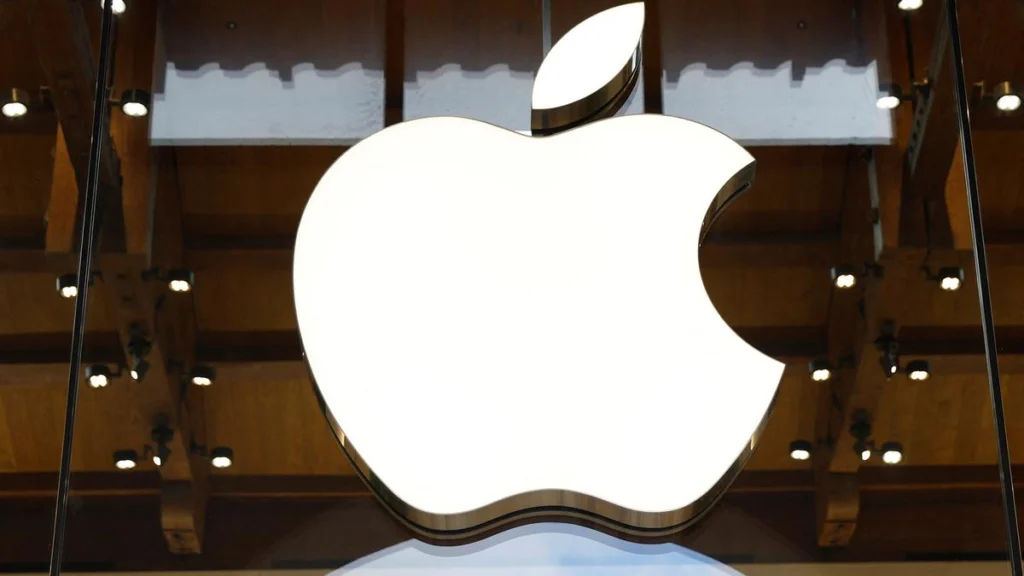Apple fined $570 million and Meta $228 million for breach of EU law

EU Fines Apple and Meta: What It Means for Big Tech and U.S.-Europe Relations
On April 23, 2025, the European Union (EU) imposed significant fines on two prominent American tech companies, Apple and Meta, for violating antitrust regulations. Apple faces a penalty of 500 million euros (approximately $570 million), while Meta has been fined 200 million euros. These fines mark the first enforcement of the Digital Markets Act (DMA), a groundbreaking piece of legislation aimed at curbing Big Tech’s dominance.
This move comes as part of a larger global trend to regulate the power of tech giants. However, the decision could also fuel tensions between the EU and the United States. U.S. President Donald Trump has expressed concern about the EU’s treatment of American companies. Previously, Trump has threatened to impose tariffs on countries that penalize U.S. firms, and this situation could lead to a diplomatic confrontation.
The Digital Markets Act: Strengthening EU’s Antitrust Measures
The Digital Markets Act (DMA) aims to ensure that tech companies, like Apple and Meta, do not abuse their market power. The new rules target anti-competitive practices, such as unfair prioritization of in-house services over third-party products, which Apple and Meta have been accused of in the past.
For example, Apple has faced accusations of using its App Store to promote its own services and restrict competitors. Similarly, Meta has been criticized for acquiring rivals like Instagram and WhatsApp, potentially creating a monopoly in social media. The EU’s new law aims to restore a fairer playing field, with the intention of promoting competition and ensuring that smaller companies have a fair chance at success.
With these first-ever fines, the EU is signaling that it will no longer tolerate monopolistic behavior from tech companies. It is clear that the EU is determined to hold Big Tech accountable for its dominance in the digital market.
U.S. Response: Potential for Trade Conflict
While the EU has taken a strong stand on regulating Big Tech, its actions could spark a response from the U.S. government, particularly under President Donald Trump’s leadership. Trump has long defended American companies and has vowed to protect U.S. firms from foreign regulatory actions he sees as unfair.
In the past, Trump has used tariffs to retaliate against countries he believes are unfairly targeting American businesses. The imposition of fines on Apple and Meta could prompt Trump to follow through with similar actions. He could impose tariffs on key European imports, such as automobiles or agricultural products, as a form of retaliation. This would risk escalating tensions between the U.S. and the EU, potentially hurting global trade.
Trump’s administration has shown little tolerance for what it considers protectionist measures. Thus, the fines could create a broader trade conflict that impacts businesses and consumers on both sides of the Atlantic.
Immediate Effects on Apple and Meta
The immediate financial impact on Apple and Meta is clear: they must pay substantial fines. However, the long-term effects could be even more significant. Both companies may need to adjust their business strategies in Europe to comply with the EU’s new regulations. Apple may need to revise its App Store policies to encourage more competition, and Meta may have to change its data handling practices to meet the stricter standards set by the EU.
While these penalties may hurt both companies’ short-term profits, they might also lead to longer-term benefits. Revising business practices could help Apple and Meta to operate in a more fair and transparent manner, potentially increasing consumer trust and reducing regulatory scrutiny in the future.
The Global Implications of EU’s Antitrust Actions
The EU’s move is part of a broader global trend of tightening regulations on Big Tech. Countries like India and China have already introduced or are considering similar regulations to prevent monopolistic practices in the tech industry. The U.S. is also starting to discuss stronger antitrust measures targeting tech giants, and it’s likely that other countries will follow suit.
The EU’s leadership in tech regulation could influence other jurisdictions to adopt similar antitrust frameworks, ensuring that global tech companies cannot operate unchecked. These efforts aim to create a fairer digital economy, where competition thrives and smaller companies have a chance to succeed.
Conclusion: What’s Next for Big Tech?
The fines imposed on Apple and Meta mark an important milestone in the effort to regulate Big Tech. While the immediate impact is financial, the long-term implications could be more transformative. The EU’s actions could shape the future of Big Tech, encouraging transparency and fairness in the industry.
The potential U.S. response adds another layer of complexity to this situation. If President Trump decides to impose tariffs in retaliation, this could spark a trade conflict that would have global consequences. However, Apple and Meta will likely focus on restructuring their operations in Europe to comply with the new regulations, hoping to avoid further scrutiny and restore their business practices.
This is just the beginning of a larger conversation about the role of regulation in tech. The EU’s fines have sent a clear message to Big Tech that they will no longer operate without accountability. As governments around the world take steps to regulate the industry, the future of Big Tech will likely be shaped by these ongoing efforts.






